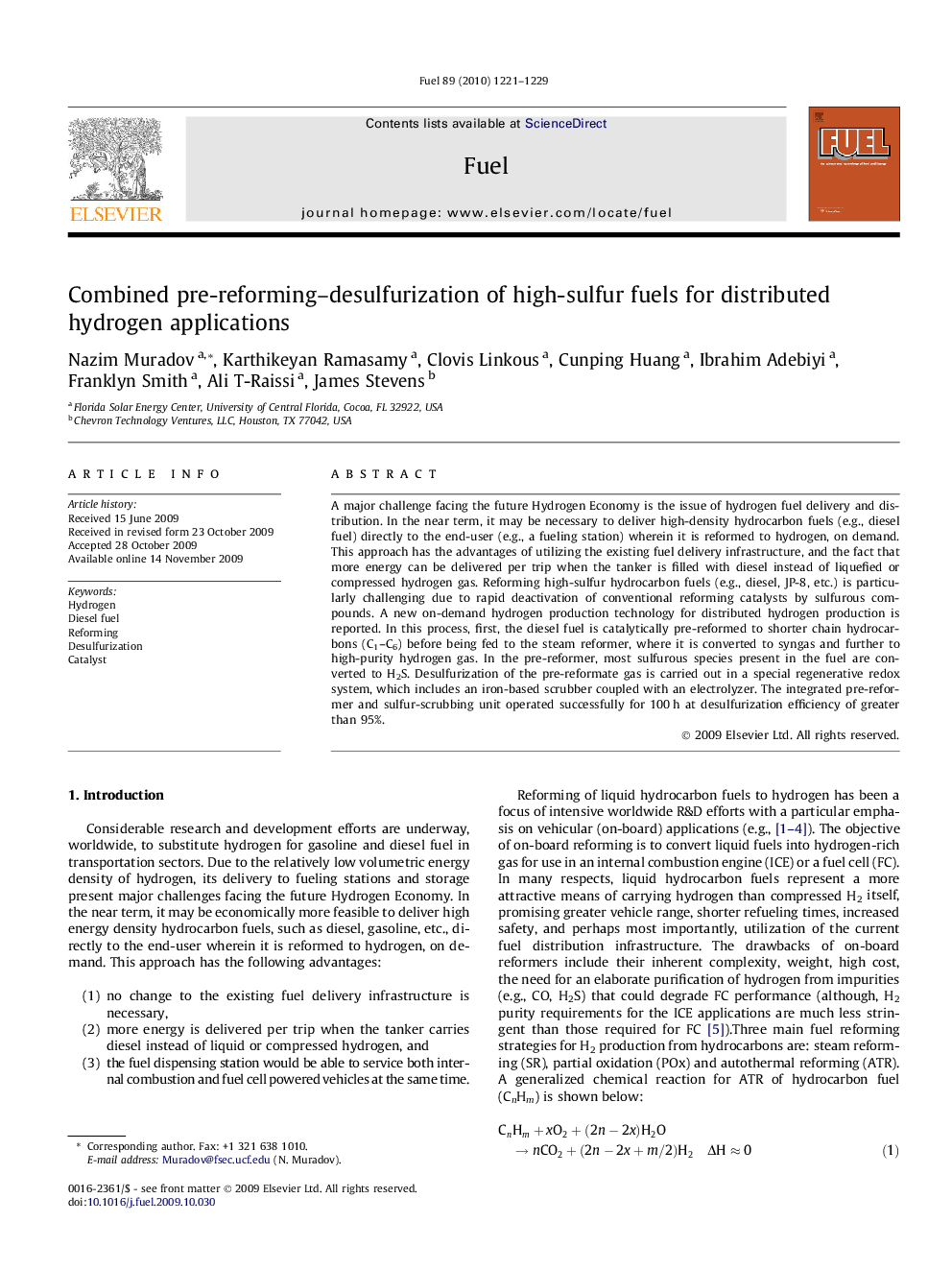| Article ID | Journal | Published Year | Pages | File Type |
|---|---|---|---|---|
| 207237 | Fuel | 2010 | 9 Pages |
A major challenge facing the future Hydrogen Economy is the issue of hydrogen fuel delivery and distribution. In the near term, it may be necessary to deliver high-density hydrocarbon fuels (e.g., diesel fuel) directly to the end-user (e.g., a fueling station) wherein it is reformed to hydrogen, on demand. This approach has the advantages of utilizing the existing fuel delivery infrastructure, and the fact that more energy can be delivered per trip when the tanker is filled with diesel instead of liquefied or compressed hydrogen gas. Reforming high-sulfur hydrocarbon fuels (e.g., diesel, JP-8, etc.) is particularly challenging due to rapid deactivation of conventional reforming catalysts by sulfurous compounds. A new on-demand hydrogen production technology for distributed hydrogen production is reported. In this process, first, the diesel fuel is catalytically pre-reformed to shorter chain hydrocarbons (C1–C6) before being fed to the steam reformer, where it is converted to syngas and further to high-purity hydrogen gas. In the pre-reformer, most sulfurous species present in the fuel are converted to H2S. Desulfurization of the pre-reformate gas is carried out in a special regenerative redox system, which includes an iron-based scrubber coupled with an electrolyzer. The integrated pre-reformer and sulfur-scrubbing unit operated successfully for 100 h at desulfurization efficiency of greater than 95%.
